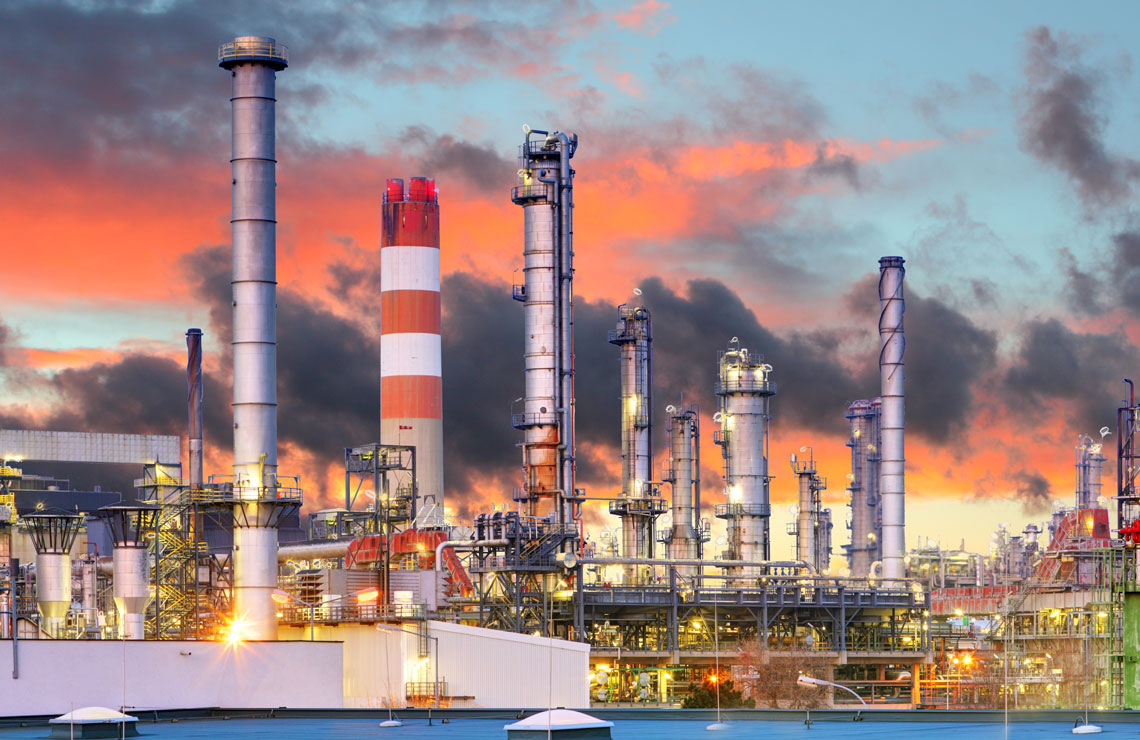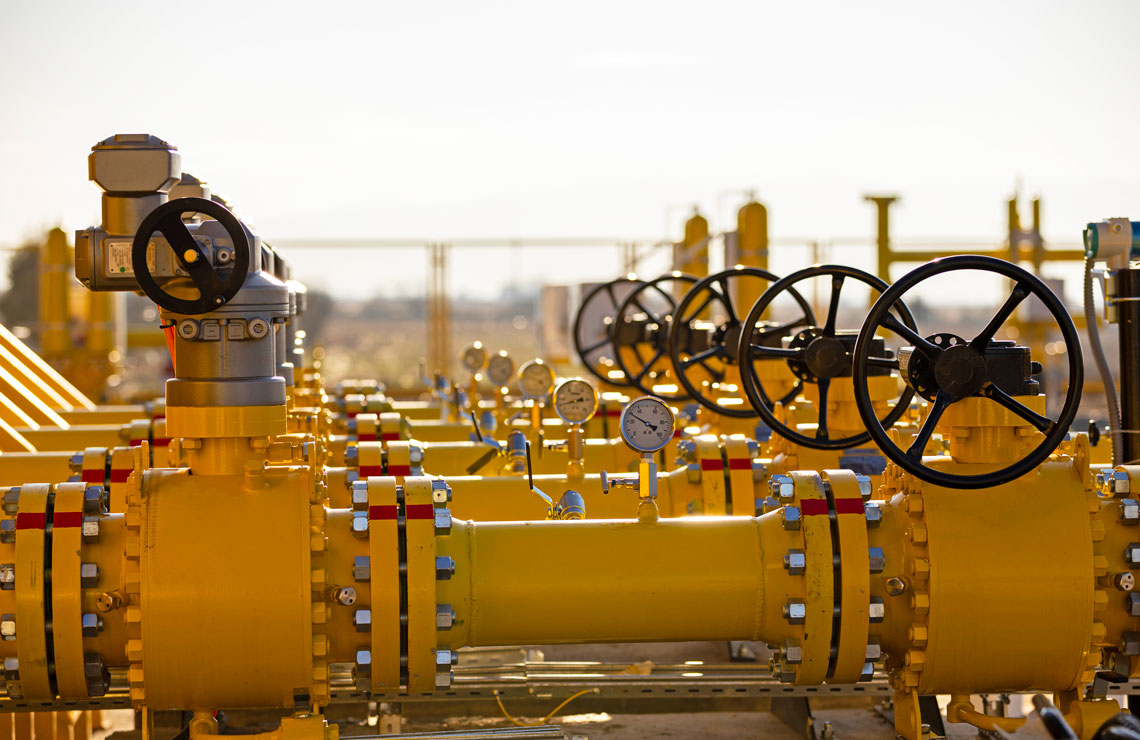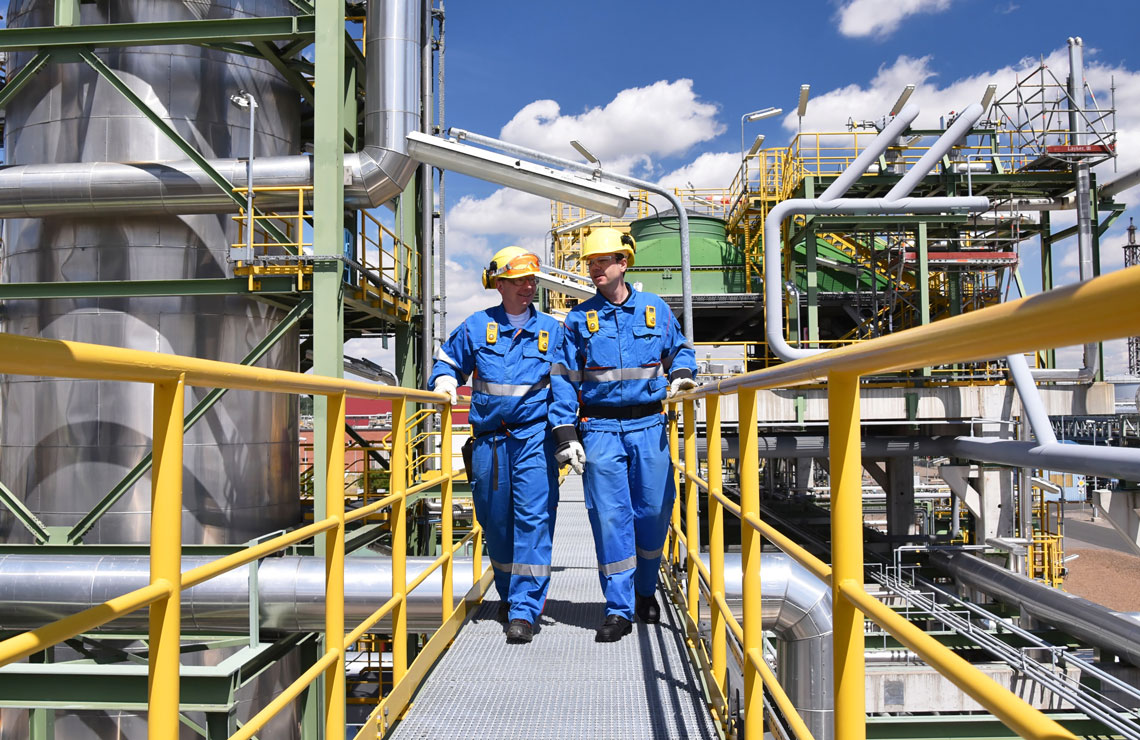
The Demands of Oil and Gas Operations
This is where process control technology becomes indispensable. Far more than simple automation, process control involves real-time monitoring, feedback loops, and predictive adjustments that keep systems running at peak efficiency while minimizing risks. For decades, it has been the backbone of modern refineries and gas plants, ensuring consistency in operations while driving measurable improvements in safety, profitability, and sustainability.
What Is the Role of Process Control in Oil Refining?
Refineries take crude oil, a mixture of hydrocarbons, and convert it into valuable products like gasoline, diesel, jet fuel, and lubricants. This process requires multiple stages: atmospheric and vacuum distillation, catalytic cracking, hydroprocessing, and blending. Each stage must be precisely monitored and controlled to maximize yields and avoid dangerous conditions.
- Temperature Control: Furnaces, reactors, and distillation columns operate under extreme heat. Process control ensures precise temperature regulation, preventing equipment damage and ensuring separation efficiency.
- Pressure Management: Pumps, compressors, and reactors function within narrow pressure ranges. Automated systems detect anomalies and adjust before they escalate into shutdowns or safety hazards.
- Product Quality: Advanced process control (APC) integrates feedback from online analyzers to maintain tight product specifications. For example, octane levels in gasoline or sulfur content in diesel must remain within regulatory limits.
Refineries that implement advanced process control see tangible benefits: Higher throughput, reduced energy consumption, and improved margins even in volatile markets.

Natural Gas Operations and Control Systems
Natural gas processing plants face a different but equally complex set of challenges. After extraction, raw gas must be treated to remove water, CO₂, hydrogen sulfide, and natural gas liquids. Each of these steps requires precision.
- Dehydration Units: Process control ensures glycol regenerators and molecular sieves function optimally to prevent pipeline corrosion.
- Acid Gas Removal: Amine systems rely on careful monitoring of solvent flow, regeneration cycles, and absorber conditions. Without proper control, plants risk high emissions and reduced efficiency.
- Cryogenic Processing: When cooling natural gas to liquefied natural gas (LNG), minor deviations in temperature or pressure can cause costly inefficiencies. Control systems maintain stability across compressors and exchangers.
By integrating modern process automation, operators gain real-time visibility into conditions and can make proactive adjustments rather than waiting for manual interventions.
Safety and Compliance Is A Core Priority In Oil and Gas
In the oil and gas industries, mistakes are not only costly, they can be catastrophic. Process control technology plays a direct role in safeguarding workers, equipment, and communities.
- Emergency Shutdown Systems (ESD): These systems automatically activate when unsafe thresholds are detected, shutting down equipment to prevent escalation.
- Regulatory Compliance: Process automation ensures continuous monitoring of emissions, waste, and effluents, with digital records available for audits.
- Worker Safety: By reducing manual intervention in hazardous areas, control systems minimize exposure risks for personnel.

Energy Efficiency and Sustainability
One of the greatest pressures facing oil and gas today is the demand for lower carbon intensity. Process control directly supports these goals.
- Flare Gas Management: Automated control of flare stacks minimizes excess burning, cutting emissions and conserving valuable hydrocarbons.
- Heat Integration: Advanced controls optimize heat exchanger networks to recycle energy throughout refineries and gas plants.
- Emission Reduction: Continuous emissions monitoring (CEMS) systems, integrated with plant controls, allow operators to fine-tune combustion and minimize CO₂ output.
Companies that invest in energy efficiency not only reduce environmental impact but also see measurable cost savings, making process control a cornerstone of both sustainability and profitability.
Case Applications: Refining vs. Natural Gas Processing
While both refining and natural gas operations rely on process control, their applications differ.
- Refining Example: Catalytic cracking requires precise temperature and catalyst management. Advanced control systems monitor reactor conditions, adjusting catalyst feed rates to maintain optimal cracking without overprocessing.
- Natural Gas Example: In LNG facilities, liquefaction trains involve multiple refrigeration cycles. Process automation ensures compressors, turbines, and exchangers run in sync, preventing costly bottlenecks or shutdowns.
These real-world applications illustrate why process control is considered indispensable rather than optional.
Future Outlook: AI, Machine Learning, and Autonomous Plants
The future of oil and gas is increasingly digital. Emerging technologies are reshaping what process control can achieve.
- AI and Predictive Analytics: Machine learning models analyze patterns to predict failures before they happen, reducing unplanned downtime.
- Digital Twin Software: Virtual models of refineries and gas plants allow operators to simulate scenarios, test optimizations, and train personnel in a risk-free environment.
- Autonomous Operations: The ultimate goal is the “self-driving plant,” where human oversight remains, but the bulk of decision-making occurs through intelligent automation.
Companies like Proconex are already integrating these technologies, giving operators a roadmap to safer, smarter, and more profitable plants.
Conclusion: A Competitive Imperative
Oil refining and natural gas operations are too complex to rely on manual oversight. Process control technology provides the foundation for safe, efficient, and profitable operations, while enabling companies to meet rising expectations around sustainability and digital transformation.
From traditional feedback loops to AI-driven analytics, process control continues to evolve as the single most important lever operators can pull to optimize performance. Companies that embrace these solutions gain an undeniable competitive advantage in one of the world’s most demanding industries.
Ready to strengthen your oil and gas operations? Proconex helps energy leaders implement advanced process control solutions tailored to complex refining and natural gas environments. Explore our management operations in oil & gas!
